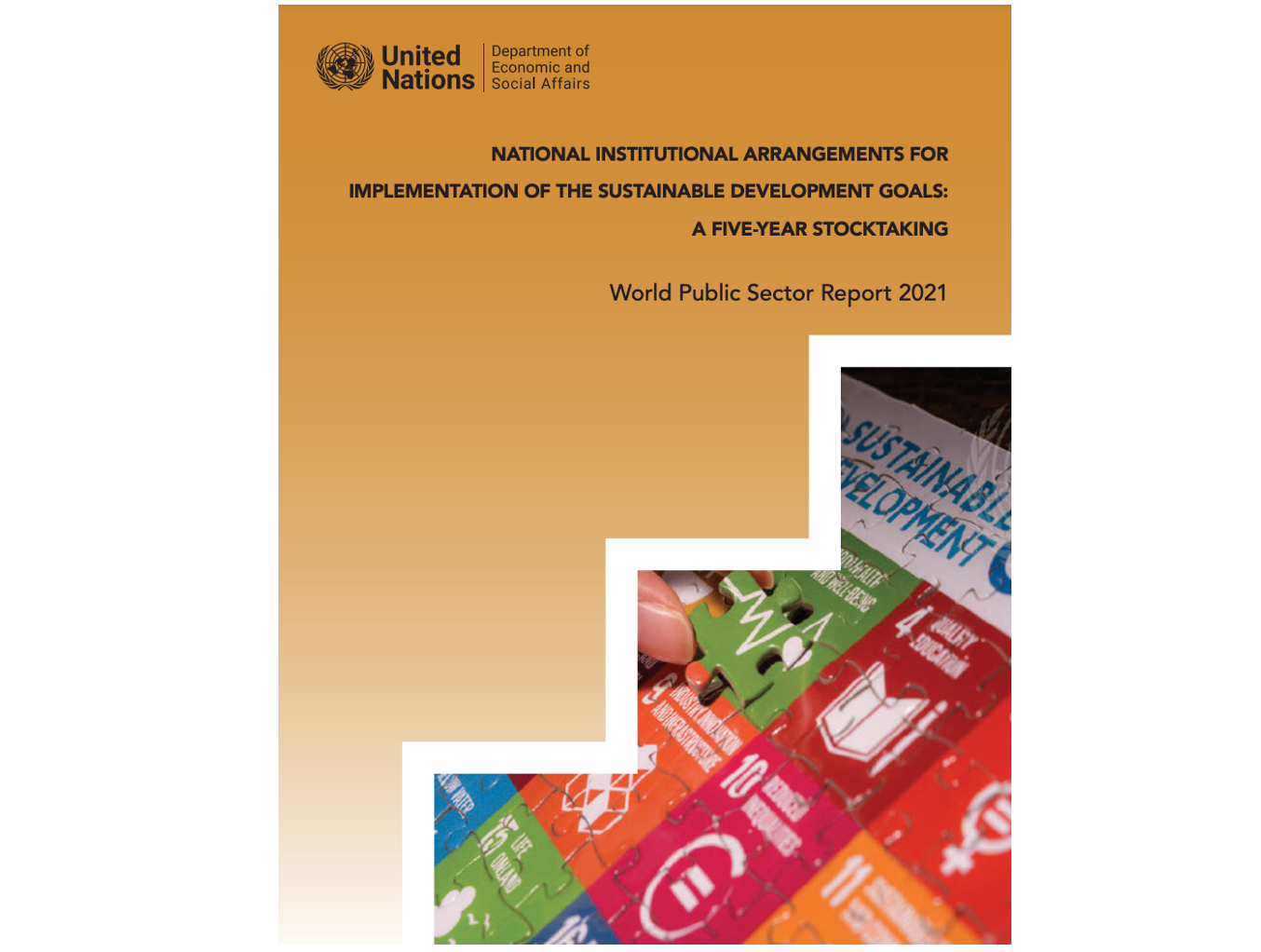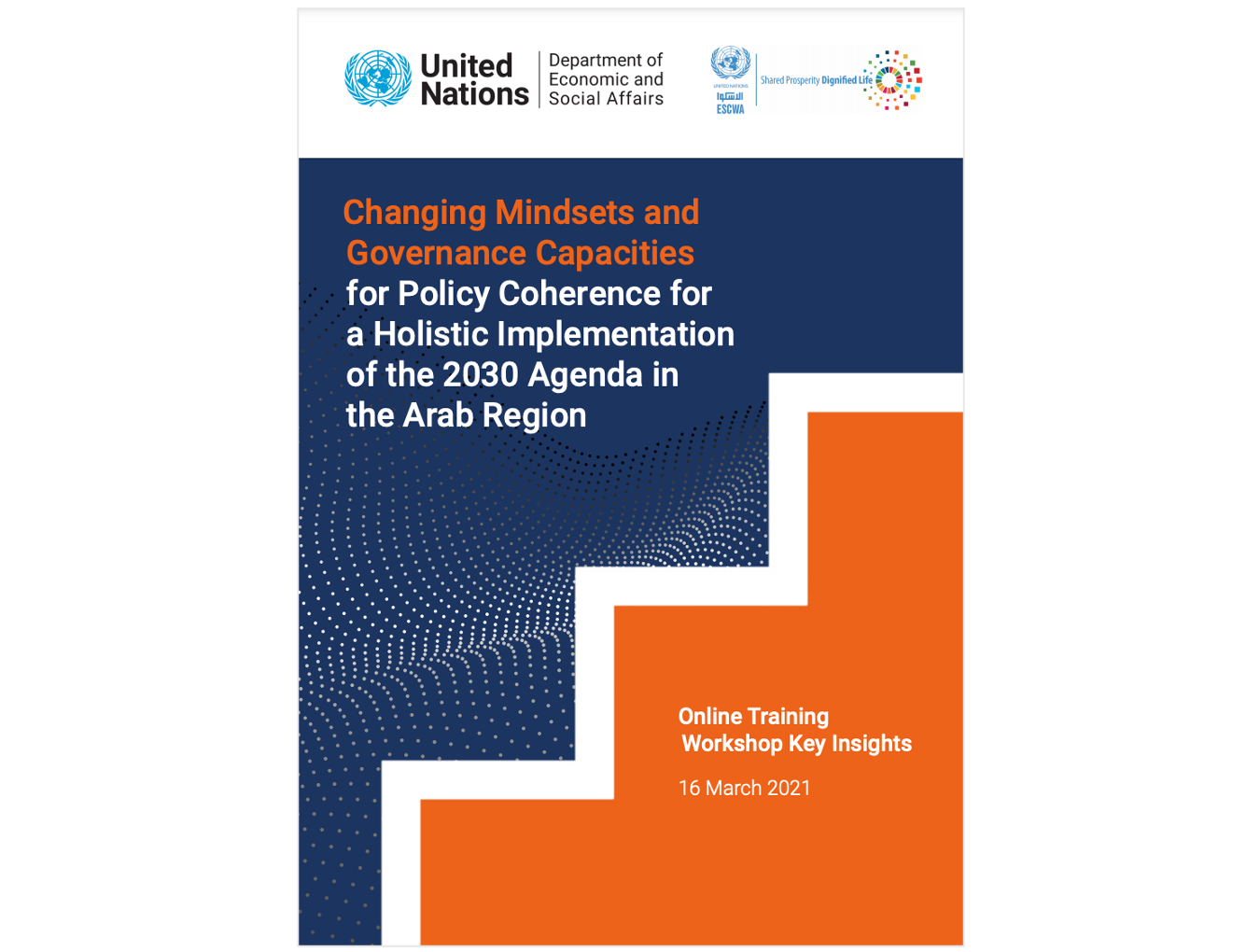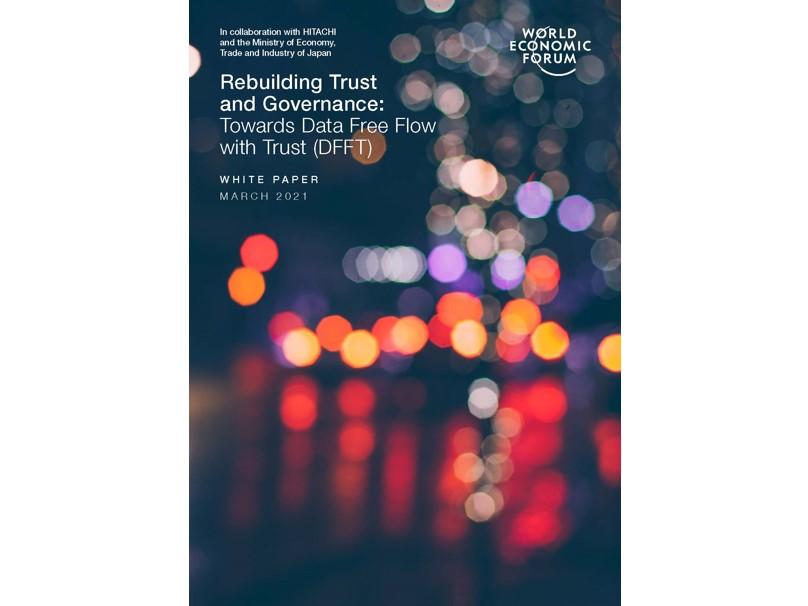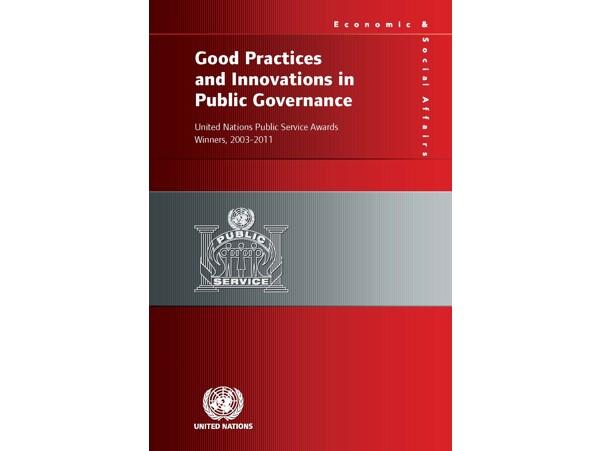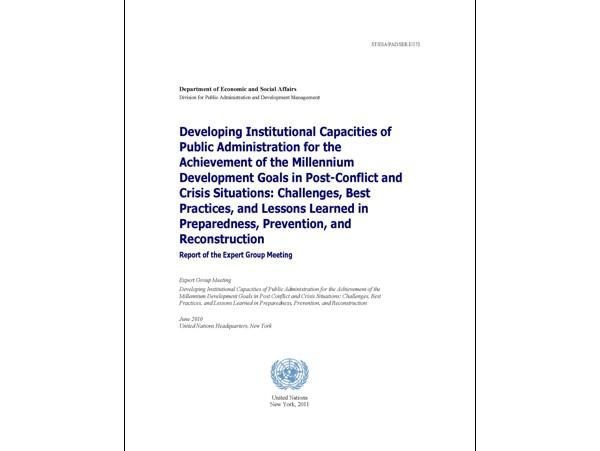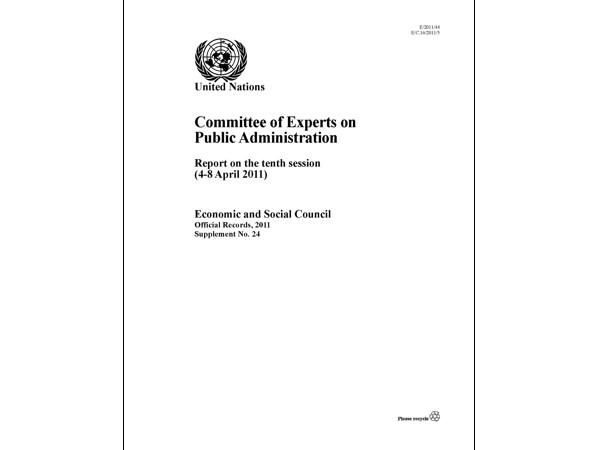Resources
Displaying 1 - 11 of 11
Global Smart Cities 2021 - Smart Cities at the Epicenter of the Pandemic
| English | Governance and Public Institutions | Global | Publication | RCOCI
Global Smart Cities 2021 is a collaborative result by Institute of Information, Shanghai Academy of Social Sciences partnered with Smart City Research Center, Fudan University, with consistent support from the United Nations Public Administration Network. This report is the fifth edition of annual review of global smart cities.
This report based on a “5+1” evaluation model for global smart cities, and provides five quantitative indicators,…
UN/DESA Policy Brief #117: Building the Capacities of Public Servants to Implement the 2030 Agenda
| English | Governance and Public Institutions | Global | Policy Brief | UN DESA/DPIDG
The 2030 Agenda recognizes that capacity in governments at all levels is critical to steer and support the transformations which it calls for. Thus, public servants at all levels of government need the capacity to successfully implement, follow up and review the Sustainable Development Goals (SDGs).
The SDGs are an umbrella framework encompassing almost every sector of human activity. In a broad sense, “capacity for implementing the SDGs”…
UN/DESA Policy Brief #116: A view of Changes in Institutional Arrangements for SDG Implementation at the National Level Since 2015
| English | Governance and Public Institutions | Global | Policy Brief | UN DESA/DPIDG
Five years after the adoption of the 2030 Agenda for Sustainable Development, with one third of the implementation period of its 17 Sustainable Development Goals having elapsed, it is important to take stock of relevant institutional arrangements at the national level. Institutionalization of the 2030 Agenda and the SDGs lays the foundation for their effective implementation. It also serves as an indicator of the degree to which the Agenda is…
UN/DESA Policy Brief #114: Connecting the Dots: The Still Elusive Synergies Between Accountability Institutions and the Follow-up and Review of the Sustainable Development Goals
| English | Governance and Public Institutions | Global | Policy Brief | UN DESA/DPIDG
The 2030 Agenda highlights the importance of the follow-up and review of the Sustainable Development Goals (SDGs) as an accountability mechanism and sets clear principles to guide it. Accountability institutions such as parliaments and supreme audit institutions (SAIs) are playing an increasing role in SDG oversight and assessment. However, while countries have made significant progress in institutionalizing SDG follow-up and review, the…
World Public Sector Report 2021
| English | Governance and Public Institutions | Global | Publication | UN DESA/DPIDG
With one third of the implementation period of the Sustainable Development Goals (SDGs) having elapsed, it is important to take stock of how far countries have gone in adapting their institutional frameworks to implement the Goals.
Institutions are paramount to the achievement of the 2030 Agenda for Sustainable Development and all the Sustainable Development Goals (SDGs). This is well recognized in the Agenda itself. Five years after the start…
Report of the SDG 16 Conference
| English | Governance and Public Institutions | Global | Publication | UN DESA/DPIDG
The 2021 global SDG 16 Conference – Transforming Governance for a more Peaceful, Just and Inclusive Future: SDG 16 as the roadmap to respond to COVID-19 and build back better – came to a successful conclusion on Friday, 30 April 2021, following six high-level plenary sessions and nine parallel thematic sessions, all held in a virtual format.
Co-organized by the United Nations Department of Economic and Social Affairs (DESA), the International…
Report on Changing Mindsets and Governance Capacities for Policy Coherence for a Holistic Implementation of the 2030 Agenda in the Arab Region
| English | Governance and Public Institutions | Global | Publication | UN DESA/DPIDG
This report summarizes the key messages that were conveyed by facilitators, participants and external speakers during the online training workshop on “Changing Mindsets and Strengthening Governance Capacities for Policy Coherence for a Holistic Implementation of the 2030 Agenda in the Arab region”. The four-day workshop was organized by the United Nations Department of Economic and Social Affairs of the United Nations (UN DESA), through its…
Rebuilding Trust and Governance: Towards Data Free Flow with Trust (DFFT)
| English | Governance and Public Institutions | Global | Publication | WEF
This White Paper provides a bird’s-eye view of the governance challenges of the Fourth Industrial Revolution, with trust as the central theme. In cooperation with the Ministry of Economy, Trade and Industry of Japan and Japanese companies and academia, the World Economic Forum Centre for the Fourth Industrial Revolution Japan is working to find solutions to common challenges that exist at the root of various fields. As part of the effort, this…
Good Practices and Innovations in Public Governance: United Nations Public Service Awards Winners, 2003-2011
| English | Governance and Public Institutions | Global | Publication | UN DESA/DPIDG
This publication is intended for policy makers, scholars and practitioners who have a keen interest in concrete solutions to governance challenges. Its purpose is to encourage more women and men in the public sector who are working hard to improve citizens’ lives, to share with the world their innovations by applying to the United Nations Public Service Awards Programme, which is held annually; to recognize the efforts of those who have already…
Report of the Expert Group Meeting on Developing Institutional Capacities of Public Administration for the Achievement of the Millennium Development Goals in Post-Conflict and Crisis Situations
| English | Governance and Public Institutions | Global | Publication | UN DESA/DPIDG
The world is currently engaged in searching for effective ways through which countries can be (i) prepared to face occurrences of violent conflict, crisis, and/or disaster, (ii) prevent/manage them and/or mitigate their negative impact on human livelihood, and (iii) where they have occurred, reconstruct institutions and systems and other capacities of to sustain delivery of public services with minimum disruption.
In light of the above, and…
Report on the tenth Session of the Committee of Experts on Public Administration
| Arabic | Chinese | English | French | Russian | Spanish | Governance and Public Institutions | Global | Publication | UN DESA/DPIDG
The present report contains the summary and recommendations of the tenth session of the Committee of Experts on Public Administration, held at United Nations Headquarters from 4 to 8 April 2011. The Committee, which was established by the Economic and Social Council in its resolution 2001/45, consists of 24 experts appointed in their personal capacity for a four-year period.
The Committee dealt with the following substantive items: (a) public…
 Bienvenue aux Nations Unies
Bienvenue aux Nations Unies

